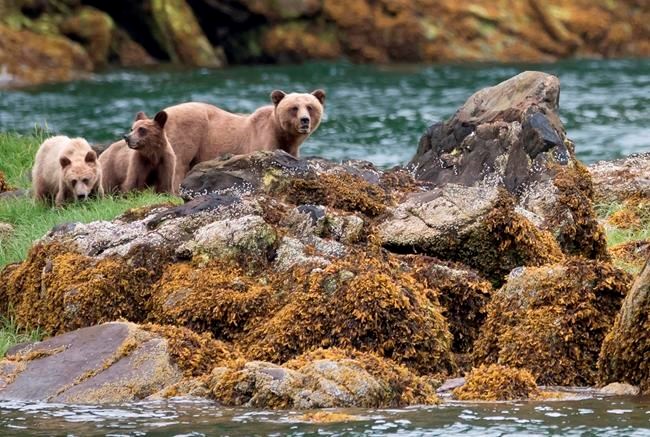Two different grizzly bears were behind a pair of fatal attacks in the Alberta foothills, a provincial wildlife officer said Friday.
Paul Frame said DNA evidence shows the bear that killed a woman Tuesday was not the same bear that attacked a man on May 4.
"This is an unrelated incident," he said.
The woman was killed as she went for an evening stroll around her property near Water Valley, Alta., a hamlet about 80 kilometres northwest of Calgary. Her body was found partly buried, initially causing wildlife officers to fear the attack was predatory.
That wasn't the case, said Frame. "It's the same as what we generally see with a defensive attack."
The bear is thought to be a sow seen regularly in the area. She has two young cubs.
Earlier this month, a man was killed while he was out for a run in the Waiparous area, about 25 kilometres south of the second attack. Although no grizzly has been seen in the immediate location, Frame said a sow in the vicinity has two cubs that appear to be a least a year old.
Wildlife officers are trying to trap the bears and their cubs. Frame said they could be relocated or euthanized. "We still have to have those discussions."
Recent research suggests grizzly numbers in the province's west are growing, he said.
A survey released in March said there were 88 grizzlies in 7,300 square kilometres of summits and foothills between the Trans-Canada Highway and Highway 11, roughly 200 kilometres to the north. That's up from 42 bears in 2005.
"There are more bears on the landscape," Frame said. "Albertans could encounter bears where they don't expect to."
Kim Titchner, a wildlife conflict consultant, said there's another factor at play.
"There's more of us going into the outdoors because of COVID," she said. "Every weekend, the mountains are just crazy slammed. It's inevitable we're going to see more bear attacks on the landscape."
Carrying bear spray is a great idea, she said.
Frame recommended people in bear country should travel in groups, make noise and keep a clean campsite.
Bear attacks are infrequent in Alberta, rarely totalling more than one a year, although there were three in 2005.
Bob Anderson runs a horse ranch and campground in the vicinity of the second attack.
He said he's seen plenty of bears in the 58 years he's lived there, but isn't sure there are more around lately.
"Never had a problem with them," he said. "They've been not bad."
He has one main piece of advice — "clean up your mess."
This report by The Canadian Press was first published May 28, 2021.
— Follow @row1960 on Twitter
Bob Weber, The Canadian Press




